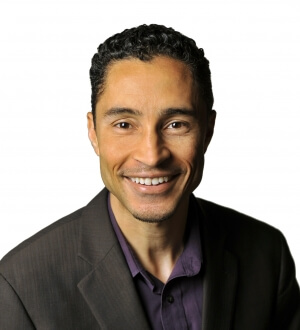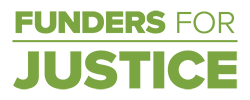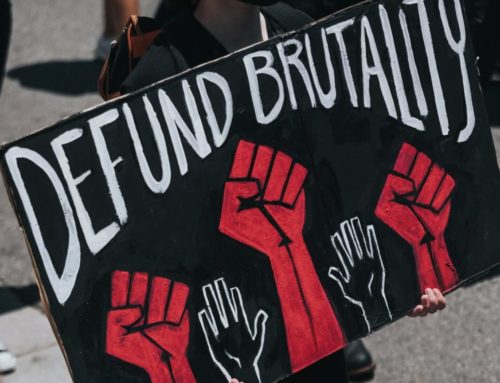FFJ Advisor Discussion Series: Zachary Norris
In the spring of 2017, Funders for Justice (FFJ) launched its inaugural cohort of Advisors – nine field leaders recognized for their leadership in community power-building, racial and gender justice, police accountability campaigns, and anti-criminalization movements. We asked them to share their insights on the current political climate, how we can build a vision for the world we want, and what funders can do in this moment. This month, FFJ staff interviewed Zachary Norris, Executive Director of the Ella Baker Center for Human Rights. (The Ella Baker Center is a leader in the Freedom Cities Movement. In case you missed last month’s funder briefing and webinar, then you can read our recap.)

Zachary Norris, Executive Director of the Ella Baker Center for Human Rights and FFJ Advisor. Photo courtesy of the Ella Baker Center for Human Rights.
How do you understand the political moment that we’re in? What do you think we need to do differently right now?
I think we need to shot for the moon. There is this game called hearts I think where you are losing so bad that you can invert things and shoot for the moon to win big. It is not that I think that we are losing that bad but clearly things are difficult and our communities are under attack. What’s clear to me is that this is an unstable political moment and one that is ripe for change. It gives us an opportunity and also shows the necessity of pushing for transformation not just reform.
That level of change requires a deep re-examination of the country’s past and a fundamental reorientation in shaping the future.
Truth and Reinvestment is our vision to achieve this change—it is both a conversation, and a call to action. “Truth” means reckoning with the reality of racial injustice in our country. It means talking about how our country has continuously prioritized and profited from shackles, walls, and jails in communities of color – from slavery to Jim Crow to our current criminal justice system. “Reinvestment” means rejecting these priorities and advancing solutions that create opportunity for our families and neighborhoods, particularly those who have been harmed by lack of investment and prejudicial policies.
It’s a time of immense challenge, but also of rapid politicization of people and institutions, creating tremendous new opportunities and wins. Have you seen any unexpected wins recently?
Despite Attorney General Jeff Sessions’ rhetoric and his attempts to ramp up the so-called war on drugs, in CA Governor Brown just signed a bill that eliminates unfair and unnecessary mandatory drug sentence enhancements. The RISE Act’s passage is one of the most significant rollbacks of the so-called war on drugs in decades. It demonstrates what can happen when powerful grassroots organizations, allies, and progressive lawmakers work together.
In fact, the Governor signed a slate of positive reforms to the youth and adult justice systems. This is a local silver lining to a gloomy federal cloud because I am not sure the Governor would have wanted to stand out so much without the desire to be seen as being in opposition to Trump.
What are some of ways that EBC connects its local work with national movements?
Recognizing the need for a visionary approach to the challenges facing all communities under attack by the new political regime, Enlace, Ella Baker Center for Human Rights, and Black Alliance for Just Immigration, organizations with decades of experience organizing and advocating for women, Black and immigrant families, and poor and low-wage workers, have united to initiate Freedom Cities.
Freedom Cities is an emerging movement that seeks to make cities, towns, and communities safe for all oppressed people in the U.S. Freedom Cities was conceived by those directly affected by policies that incarcerate, displace, and marginalize communities of color. We believe that communities will only be safe when everyone lives with dignity and has the opportunity to thrive without fear of physical violence, racial injustice, and economic oppression at the hands of greedy corporations, white supremacists, or the government.
What is EBC building that is about a vision for the communities that you want to have?
I’d like to lift up two examples: Night Out for Safety and Liberation and Restore Oakland.
Too often, conversations about public safety revolve around punishment and fear. Safety is about more than that—it’s about having a living wage job, healthy food, and being able to afford childcare, healthcare, and housing. That’s why we partner with allies across the country to host Night Out for Safety and Liberation, when people come together to redefine what #SafetyIs: dignity, opportunity, and power in our communities.
Restore Oakland is a joint initiative between the Ella Baker Center and Restaurant Opportunities Centers United. It will be a community advocacy and training center that will empower Bay Area community members to transform our economic and justice systems and make a safe and secure future possible for themselves and for their families.
What should funders be doing in this moment to support social change and transformation work over the immediate moment and sustain it over the longer term?
Don’t give up if you don’t see change right away. Good organizing takes time. The Ella Baker Center helped lead a campaign to close 5 of 8 CA youth prisons, without diminishing public safety. In fact, I think young people are better off as a result. The campaign took nearly a decade. Yet the investment was worth it. Longterm victories like these tend to have outsized impact because they shift the boundaries of the possible.


